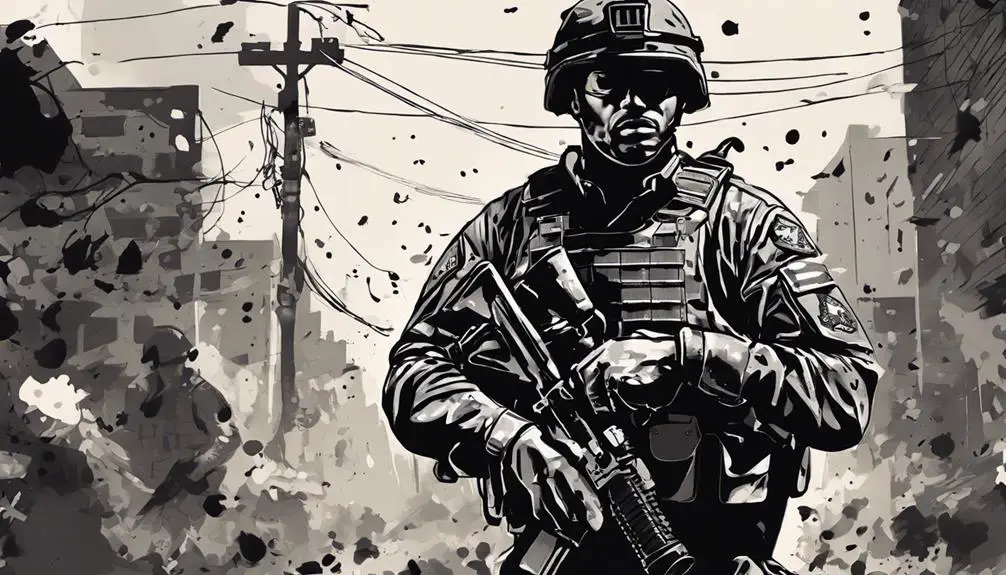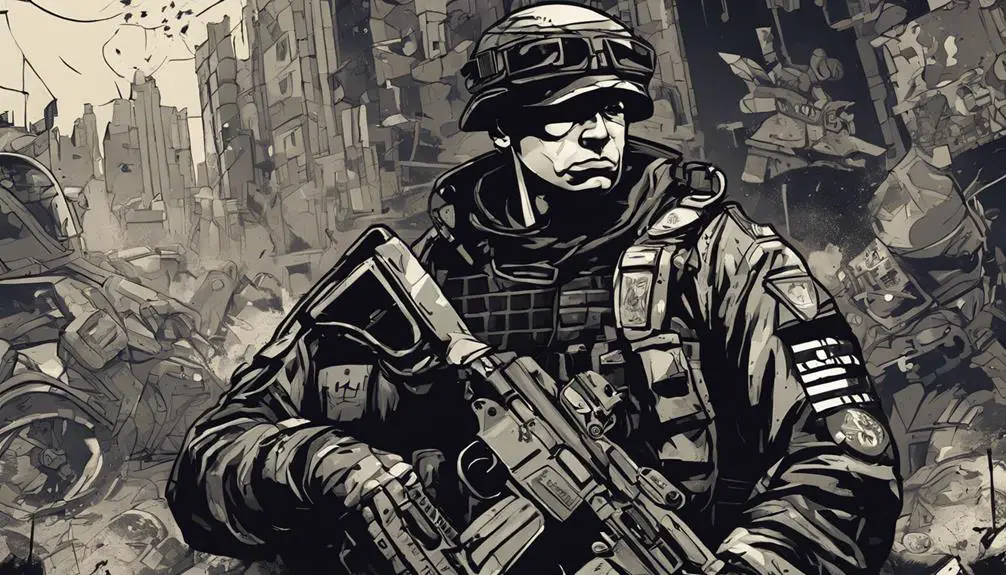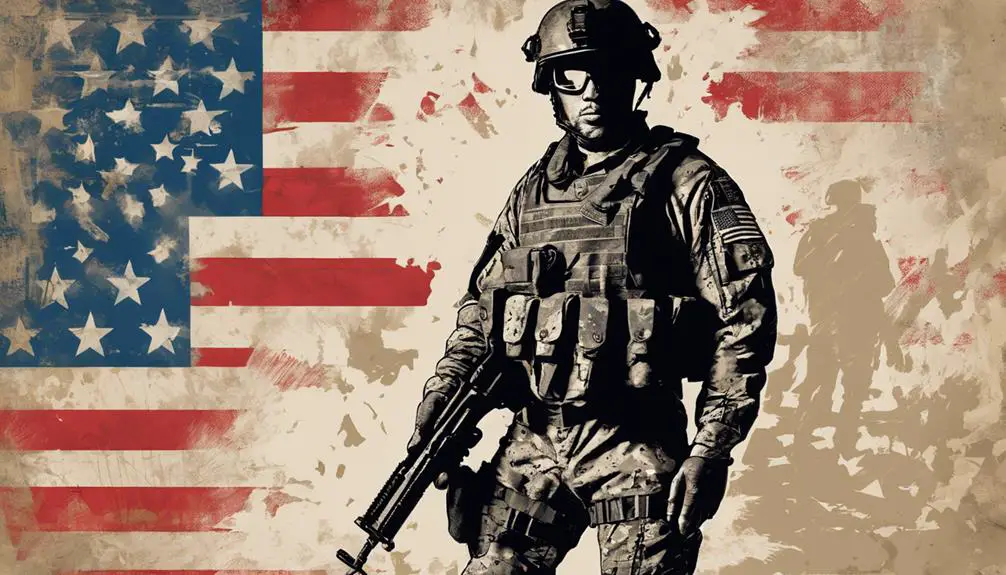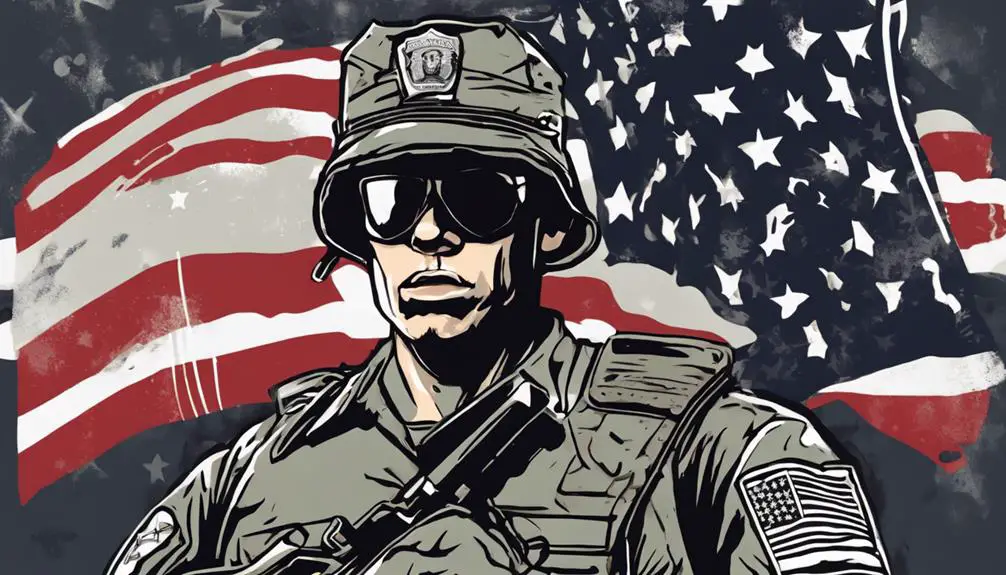When interacting with Military Police (MPs), understanding their slang is essential for effective communication and situational awareness. You'll hear terms like 'Bravo Zulu' for a job well done, 'Oscar Mike' for on the move, and 'SITREP' for situation report. Vehicle codes like 'Bravo-1' for a patrol car and 'Tango-2' for a tactical response vehicle are also used. Familiarizing yourself with MP slang can improve collaboration and help you better respond to situations. As you learn more about MP operations, you'll uncover a rich lexicon of codes and terminology that reveal the intricacies of their work.
Common MP Slang Terms

You'll frequently encounter certain terms in military police slang that have become an integral part of the MPs' daily communication. These colloquialisms, known as MP Lingo or Cop Speak, facilitate efficient communication among military police personnel. Familiarizing yourself with these terms will enhance your understanding of military police operations.
In MP Lingo, you'll come across terms like 'bravo zulu,' meaning 'good job' or 'well done.' 'Oscar Mike' indicates 'on the move' or 'moving out.' 'SITREP' is short for 'situation report,' which provides an update on a particular situation. 'ROE' stands for 'rules of engagement,' outlining the circumstances under which force can be used. 'EOD' refers to the Explosive Ordnance Disposal team, responsible for handling explosive devices.
Understanding these terms will help you better comprehend military police communication. They're an essential part of the MP culture, allowing personnel to quickly convey critical information in high-pressure situations.
Code Words for Vehicles
In military police operations, code words are assigned to various vehicles to facilitate rapid communication and maintain secrecy. You'll find that Vehicle Codes are used to identify specific types of vehicles, ensuring clear and concise communication during operations.
For instance, a 'Bravo-1' might refer to a patrol car, while a 'Tango-2' could signify a tactical response vehicle. These codes enable Military Police (MPs) to quickly convey critical information, reducing misunderstandings and promoting effective coordination.
Tactical Rigs, such as armored vehicles or surveillance units, also have designated codes, allowing MPs to swiftly respond to emerging situations. When communicating via radio, MPs use these Vehicle Codes to request or report vehicle deployments, ensuring a common language and minimizing confusion.
Operational Lingo and Jargon

What specific phrases or expressions do Military Police use to convey complex operational information swiftly and accurately during critical situations?
As a Military Police officer, you know that effective communication is vital in high-pressure scenarios. To guarantee clarity and precision, you rely on operational lingo and jargon to convey critical information via radio.
Here are some essential phrases and expressions you use:
- Radio etiquette: You use standardized radio protocols to minimize confusion and ensure seamless communication. This includes using call signs, clear speech, and avoiding jargon unfamiliar to non-military personnel.
- Phonetic alphabets: You employ phonetic alphabets (e.g., Alpha, Bravo, Charlie) to clearly articulate letters and numbers, reducing misunderstandings.
- SITREP: You provide situation reports (SITREP) to update commanders on developing situations, ensuring timely and informed decision-making.
- ROE: You understand and communicate Rules of Engagement (ROE) to guarantee proportionate and appropriate responses to threats.
- Tactical brevity codes: You utilize concise codes (e.g., 'Bravo-Uniform-Charlie-Kilo' for 'Buck') to rapidly convey complex information, saving precious seconds in high-stress situations.
Security and Surveillance Slang
When conducting security and surveillance operations, do you rely on specialized slang to swiftly convey critical information about potential threats, vulnerabilities, and security breaches? As a military police officer, you understand the importance of clear and concise communication in high-stakes situations. In security and surveillance contexts, using the right terminology can mean the difference between success and failure.
In this domain, you're familiar with 'perimeter protocols,' which refer to the procedures in place to secure a specific area or zone. You know that adhering to these protocols is vital in preventing unauthorized access and maintaining situational awareness. Additionally, you're aware of the 'surveillance ethics' that guide your actions, ensuring that you balance the need for intelligence gathering with respect for individuals' privacy and rights.
In the heat of the moment, using specialized slang like 'situational awareness' or 'threat assessment' helps you quickly convey complex information to your team. By leveraging this shared vocabulary, you can respond efficiently to emerging threats and maintain the upper hand in dynamic security environments.
Mission-Specific Military Police Jargon

You're familiar with adapting your communication style to suit the specific mission requirements, and that includes leveraging mission-specific jargon to convey complex information efficiently. As a military police officer, you understand the importance of clear and concise communication during critical operations.
Mission-specific jargon enables you to convey complex information quickly and accurately, ensuring that your team is on the same page. This is particularly vital during:
- Tactical Debriefing: where every second counts, and swift communication can mean the difference between success and failure.
- Contingency Briefings: where you need to convey critical information to your team quickly and efficiently.
- Operation-specific terminology: such as 'SITREP' for Situation Report or 'COMMS' for Communication, which are essential for seamless communication.
- Tactical operations terminology: such as 'Sweep' for clearing a room or 'Rally Point' for a pre-designated gathering spot.
- Secure communication protocols: such as 'Eyes Only' for classified information or 'Need-to-Know' for restricted access.
Frequently Asked Questions
Do Military Police Officers Have Special Driving Permits?
As you consider a career in law enforcement, you might wonder if military police officers require special driving permits.
The answer is yes, they do. Military police officers need specific driving certificates and vehicle clearance to operate specialized vehicles, such as armored cars or motorcycles.
These permits guarantee they can safely operate vehicles in high-stress situations, protecting themselves and others.
Can Military Police Officers Issue Traffic Tickets to Civilians?
When you're pulled over in a traffic stop, you might wonder if the officer issuing the ticket has the authority to do so. As a civilian, you have rights that protect you from unauthorized actions.
In most cases, military police officers can't issue traffic tickets to civilians, as their jurisdiction is generally limited to military bases and personnel. However, some states grant military police limited law enforcement powers, so understanding your local laws and civilian rights during a traffic stop is crucial.
Are Military Police Officers Trained in First Aid and Emergency Response?
You're likely to assume military personnel are only trained for combat, but that's far from the truth.
When it comes to emergency situations, you'll be relieved to know that military police officers are indeed trained in first aid and emergency response.
They're equipped to handle medical emergencies, following established emergency procedures to provide swift and effective medical response.
This thorough training enables them to respond efficiently in critical situations, saving lives and mitigating harm.
Can Military Police Officers Make Arrests on Civilian Property?
As you interact with military police officers, you may wonder if they can make arrests on civilian property. The answer lies in jurisdiction limits. Military police officers typically operate within their designated areas, but they can exercise authority on civilian property under specific circumstances.
Following military protocols, they may intervene in situations involving military personnel or property. However, their authority is generally limited to areas where they have jurisdiction, and civilian interaction is typically handled by local law enforcement.
Do Military Police Officers Have Jurisdiction on Military Bases Only?
You're wondering if military police officers have jurisdiction only on military bases. The answer is yes. Their authority is generally limited to military installations, where they're responsible for maintaining Base Security and enforcing access restrictions in Off Limit Areas.
This means they typically don't have jurisdiction over civilians or civilian property, unless it's specifically authorized by law or agreement.
Conclusion
As you explore the world of military police slang, you're suddenly transported to a domain where 'brass' means officers, 'hooah' is a battle cry, and 'lethal' doesn't always mean deadly.
You're now fluent in a language that's as mysterious as it's essential, where 'SITREP' paints a picture of the battlefield and 'ROE' dictates the rules of engagement.
In this secret dialect, clarity is key, and understanding the lingo can be a matter of life and death.







